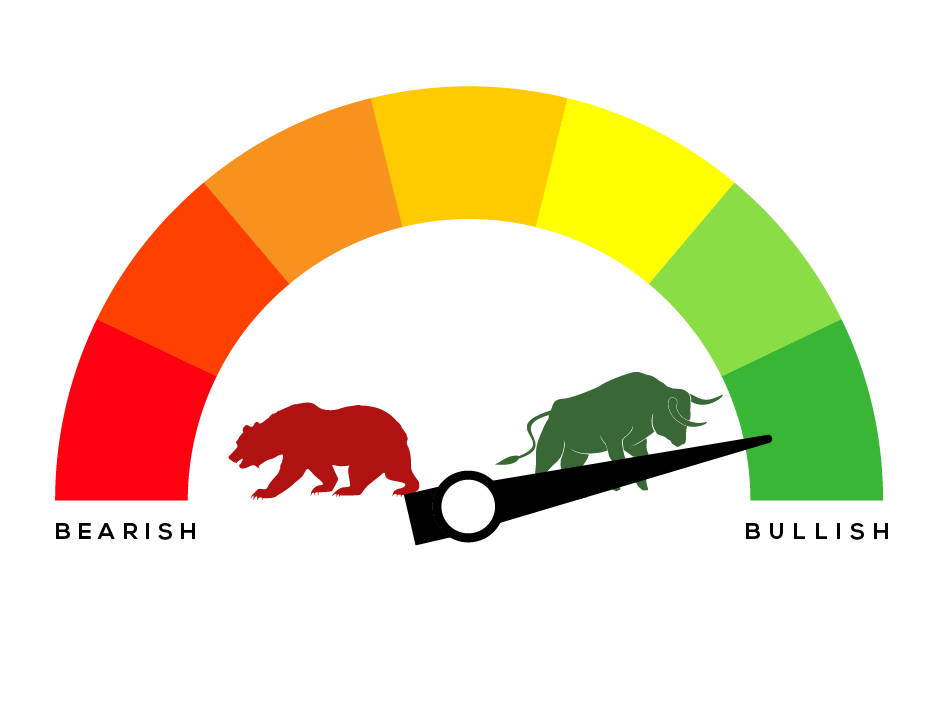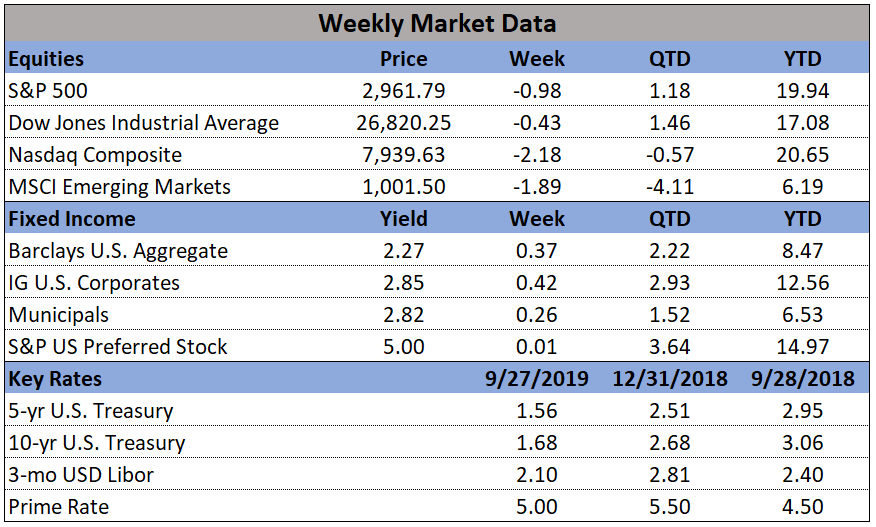In the markets:
U.S. Markets: The major U.S. equity indexes posted gains for an eighth consecutive week as optimism that the U.S. and China would reach a trade deal offset weak December retail sales data. The Dow Jones Industrial Average rallied 777 points to end the week at 25,883, a gain of 3.1%. The technology-heavy NASDAQ Composite rose 2.4%, closing at 7472. Smaller cap benchmarks outperformed large caps with the small cap Russell 2000 and mid cap S&P 400 indexes rising 4.2% and 3.3%, respectively, while the large cap S&P 500 added 2.5%.
International Markets: Almost all major non-U.S. markets finished the week in the green. Canada’s TSX finished the week up 1.3%, while across the Atlantic the United Kingdom’s FTSE rose 2.3%. On Europe’s mainland France’s CAC 40 surged 3.9%, Germany’s DAX retraced all of the previous week’s losses and then some rallying 3.6% and Italy’s Milan FTSE jumped 4.4%. In Asia, China’s Shanghai Composite rose 2.5% and Japan’s Nikkei added 2.8%. As grouped by Morgan Stanley Capital International, developed markets added 2.6%, but emerging markets finished down -0.2%.
Commodities: Precious metals were mixed on the week with Gold rising with equities markets, but silver ending the week down. Gold tacked on 0.3% closing at $1322.10 an ounce, while Silver retreated -0.4% to $15.74 an ounce. Oil continued its rally surging 6.2% to $55.98 per barrel of West Texas Intermediate crude oil. The industrial metal copper, seen as an indicator of global economic health due to its variety of uses, retreated -0.4% after being up in each of the prior five weeks.
U.S. Economic News: The Labor Department reported the number of people applying for first-time unemployment benefits rose by 4000 to a seasonally adjusted 239,000 last week. The reading lifted the monthly average of new jobless claims to a one-year high of 231,750--a possible sign the U.S. labor market may be losing some steam. Jobless claims can be especially volatile following the holiday season, but what’s potentially troubling is that even without seasonal adjustment, the actual number of people seeking benefits was higher in early February than they were a year ago. Continuing claims, which counts the number of people already collecting unemployment benefits, increased by 37,000 to 1.77 million. That number remains near its lowest level in decades.
Also in labor news, the humorously-named JOLTS (Job Openings and Labor Turnover Survey) report showed that the number of job openings surged at the end of last year, hitting an all-time high. The Labor Department reported job openings climbed to 7.34 million in December, up from 7.17 million the prior month. This reading of job openings is at its highest level since the government began keeping track in 2000. It also exceeded by a wide margin the 6.5 million Americans who were officially classified as unemployed during the month. In the details, job openings in construction led the way with an increase of almost 100,000 new positions. Healthcare providers, hotels, and restaurants also posted more available positions. The number of people that voluntarily left their jobs, known as the “quits rate”, remained unchanged at 2.6%.
Inflation at the consumer level remained flat in January, held down by weakness in energy prices and a stronger U.S. dollar. The reading missed consensus expectations of a 0.1% gain. Core CPI, which strips out the volatile food and energy categories, was up 0.2%--in line with the consensus. It was led by higher prices for shelter, medical care, apparel, household furnishings and recreation. On a year-over-year basis, the consumer price index eased to 1.6%--its slowest pace since June of 2017. However, core CPI held steady at 2.2% year-over-year indicating that underlying inflation pressures remain and deflation does not appear to be an imminent threat.








